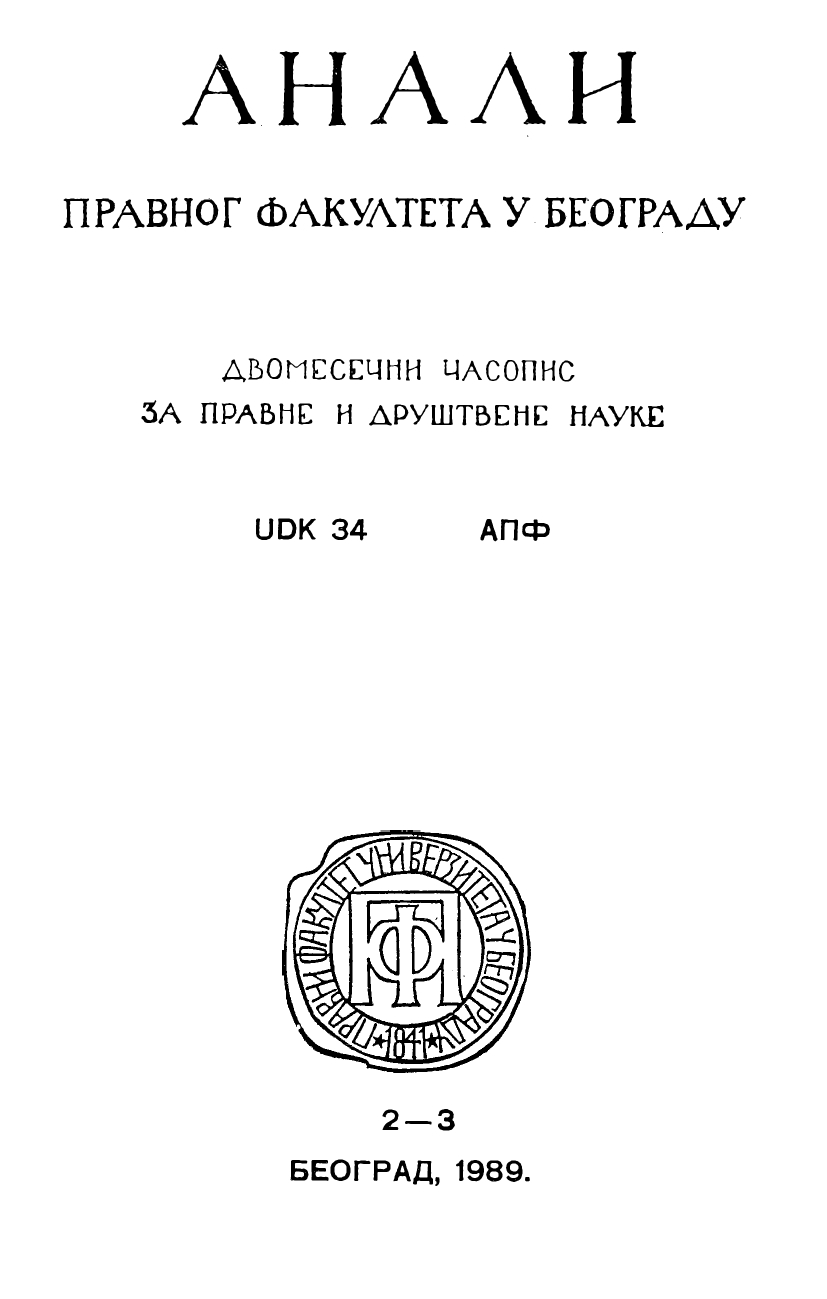КИБЕРНЕТИКА И ОРГАНИЗАЦИЈА ПОЛИТИЧКОГ СИСТЕМА
CYBERNETICS AND THE ORGANIZATION OF POLITICAL SYSTEM
Author(s): Radoslav StojanovićSubject(s): Politics / Political Sciences, Politics, Government/Political systems
Published by: Правни факултет Универзитета у Београду
Summary/Abstract: Cybernetics is considered one of the most significant achievements of knowledge until today. It means enormous changes of a revolutionary character in the development of technology which, on its part, influences the entirety of social life and politics. Creator of cybernetics — Norbert Winer considered it necessary not only to introduce the principle of cybernetics into organization of mechanical systems, but also in all systems created by man. Following are the basic principles of cybernetics in the organization of political system: (i) every system has to have a decision-making center; (ii) in every system there should be a hierarchical relationship between the system, sub-system and its elements; (iii) the cybernetics system must be decentralized up to a degree which provides a two-way communication making possible the functionning of the feedback and thus the progress of the system and prevention of increasing the entropy; (iv) since man is a decisive factor in social systems, in order that they function properly, it is necessary that responsibility be institutionalized. Such responsibility is possible only in a democratically organized system. In a contrary case, contemporary technologies would only produce contrary effects replacing progress with increased entropy. Following may be these dangers: (i) contemporary technologies (i.e. informatics, communications) stimulate bureaucratic power; (ii) their implementation leads to the tendency of increased centralization of power; (iii) informatics technology contributes to the strengthening of control of behaviour of citizens, which could lead also to restriction of freedoms and rights of citizens; (iv) all these point at great dangers of totalitarization of power. In order to eliminate these dangers a constant development is needed, as well as advancing of democratic institutions, including the mechanisms of control of power, and first of all the parliament and judicial controls, which have to be independent.
Journal: Анали Правног факултета у Београду
- Issue Year: 37/1989
- Issue No: 2-3
- Page Range: 263-273
- Page Count: 11
- Language: Serbian

